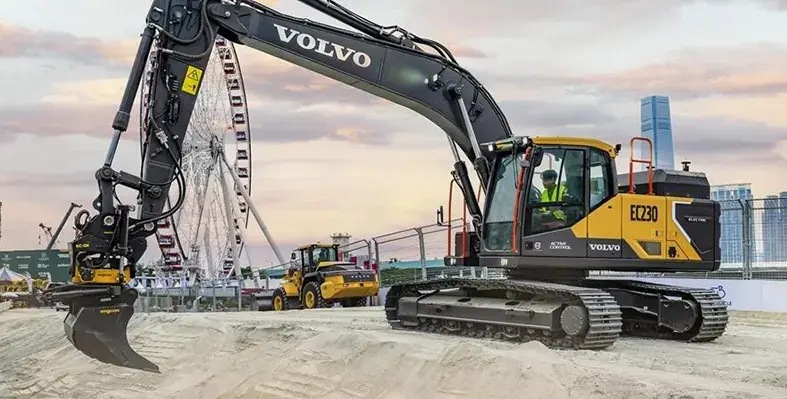Volvo CE is committed to leading the industry's decarbonisation efforts and is publishing its Product Carbon Footprint (PCF) reports.
These reports provide essential data that help customers understand their total emissions and take steps to reduce their carbon footprint. Additionally, Volvo CE is sharing its PCF methodology on its website, demonstrating how data can drive significant change. By doing so, Volvo CE offers a proven framework to collectively advance towards global and national climate goals.
The detailed methodology, created by Volvo CE's experts, examines the carbon footprint of every stage of a product’s life cycle, including both traditional and electric machines. It covers all steps from raw material extraction, component manufacturing, and machine assembly to recycling and end-of-life. This methodology is grounded in two global standards: the ISO standard for Life Cycle Assessment and the Greenhouse Gas Protocol.
Net-zero practices
The data is compiled into a report for each product, providing a clear baseline for decarbonisation efforts. This information is crucial for customers when selecting equipment for their projects and for Volvo CE's goal of achieving net-zero greenhouse gas emissions across its value chain by 2040. Achieving this goal requires consistent, long-term actions from all stakeholders in the value chain. This tool helps measure progress and guide decisions that drive meaningful action.
Rickard Alm, head of the life cycle assessment (LCA) programme at Volvo CE, said, “Customers are now rightly looking with absolute scrutiny at carbon performance – on a par with other considerations like cost and quality. With our Product Carbon Footprint reports, we are making it easier to have quick access to the information needed and enabling them to act on their decarbonisation ambitions.
“We are proud to be at the forefront with the most extensive PCF analysis available today in the construction industry to ensure the right choices are made now to deliver on our sustainable transformation.”
New catalogue
The Volvo CE LCA programme is continuously evolving, with an expanding number of Product Carbon Footprint (PCF) reports prioritised based on sales volume. Customers can visit the Volvo CE website to download PCF reports on conventional articulated haulers, wheel loaders, and excavators, as well as selected electric models like the ECR25 Electric and EC230 Electric excavators.
The reports indicate that electric machines are more sustainable over their entire life cycle compared to diesel counterparts.
“Depending on the energy mix used to charge the batteries, the emissions from the use phase of an electric machine are reduced by up to 95%,” says Rickard. “While battery manufacturing results in a higher carbon footprint for electric machines during the production phase, when compared to diesel, overall carbon emissions for an electric machine are still reduced 80-90% over the entire life cycle.”
The LCA programme is part of Volvo CE's broader sustainability strategy, which includes using low-carbon materials and transitioning to fossil fuel-free drivelines, such as those in its range of electric machines and charging solutions.
The methodology behind these reports is brand-agnostic and available for other OEMs to explore and implement. As new regulations come into effect, the calculations within the methodology will be reviewed to ensure accuracy.







